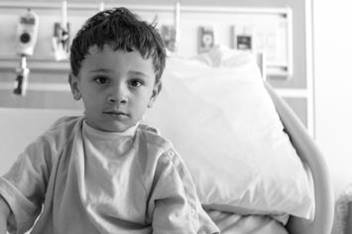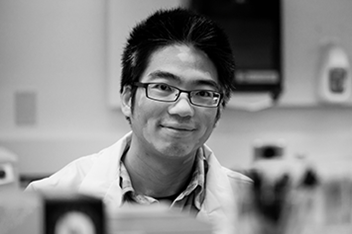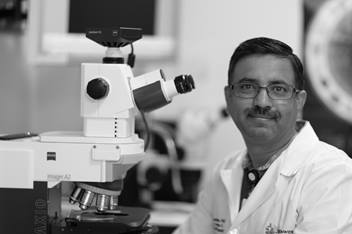Hoskinson Lab
In the Hoskinson Lab, our team studies the long term effects of pediatric chronic illnesses that affect brain functioning. We are particularly interested in how these illnesses can impact parts of the brain that support social development, complex problem solving, and day-to-day adjustment. We are also interested in how these changes can happen in the context of typical brain and social development across childhood and adolescence.
Many children face long-term social, cognitive, and emotional challenges, and having a chronic illness can elevate this risk in some children and teenagers. We hope to identify what changes in brain structure and/or function predict those at highest risk, so we can develop and implement meaningful intervention strategies to those who are most vulnerable.
Our studies integrate functional and structural magnetic resonance imaging (MRI) to look at the changes in a brain's physical structure and how it responds to and processes different types of information. We also work closely with families and schools, using questionnaires, computer games, and tasks, that tell us about a child's day-to-day behavior, thinking skills, and ability to make and keep friendships.
Our lab also collaborates closely with the Neuroimaging Research Group to develop analytic techniques and support the development and execution of behavioral and neuroimaging-based studies within and outside the Center for Biobehavioral Health.
We are currently conducting four research studies that families may participate in.
Who? All participants invited to be part of this study will have also participated in the larger Friendship Study through Dr. Cindy Gerhardt’s lab.
Why? We are interested in understanding more about the parts of the brain that contribute to managing emotions and interacting socially. These skills become very important as children grow up, but unfortunately can become more difficult when children undergo treatment for a serious illness.
What? This study would include one 2 ½ hour study visit in two parts:
- Part 1 is a testing session in which your child will complete some brief tests that look at information processing, language, and problem solving. They will also learn some games and will be introduced to a MRI “mock scanner.”
- Part 2 entails an MRI scan in which your child will play the games they’ve learned and be asked to remain still for the pictures to be taken.
Where? This visit will take place on the main campus of Nationwide Children’s Hospital. Our study staff will communicate with you to determine where to meet.
Anything else? We greatly appreciate the time and dedication of the families who participate in our studies, so all participants will be compensated for their time, travel/mileage, and receive a parking pass.
Who? We are recruiting children ages 8-16 who have suffered a complicated-mild, moderate, or severe traumatic brain injury or an orthopedic injury.
Why? We’d like to understand more about how children learn problem-solving and social skills after having an injury.
What? The study includes two parts:
- Part 1 is a 2-hour study visit at the Ohio State University in their Center for Cognitive and Behavioral Brain Imaging facilities. Your child would learn some games, be introduced to a mock MRI scanner, and then complete a one hour MRI.
- Part 2 is a visit that will take place in one of your child’s classrooms in which our study staff will work with your child’s school to complete the Children’s Friendship Study. Your child and their classmates will complete some surveys about friendships and interacting with their peers.
*The children in the class are not told about your child’s injury and the focus is on the entire class, not just your child. The principal and the teacher are the only individuals involved that are told about your child’s injury.
Where? If you choose to participate, you will only need to attend one visit with your child. It will take place at the Ohio State University Campus.
Anything else? We sincerely appreciate the families that take the time to participate in our study, so all participants are compensated for their time and receive a parking pass.
Who? All people who are invited to participate in this study will have also participated in the larger Understanding Children’s Social Outcomes/Friendship Study through Dr. Kathy Vannatta’s lab.
Why? We are interested in understanding more about how changes in the brain impact problem-solving and social skills as children grow up with or without a chronic illness.
What? This study would include one 2½ -hour study visit in two parts:
- Part 1 is a testing session in which your child will complete some brief tests that look at information processing, language, and problem solving. They will also learn some games and be introduced to a MRI “mock scanner”.
- Part 2 entails an MRI scan in which your child will play the games they learned and be asked to remain still for the pictures to be taken.
Where? The visit will take place on the main campus of Nationwide Children’s Hospital. Our study staff will communicate with you to determine where to meet.
Anything else? We sincerely appreciate the families that take the time to participate in our study, so all participants are compensated for their time, travel/mileage, and receive a parking pass.
Who? Healthy children and adolescents are invited to participate in a study of the typical trajectory of brain development and its links with social cognition, problem solving, and adjustment.
Why? We are interested in understanding more about how the brain develops in children who have not been treated for a chronic illness, especially how social and cognitive function change from childhood through adolescence. We are also interested in developing better measures for these types of skills that can be used during MRI.
What? This study would include one 4-hour study visit in two parts:
- Part 1 is a testing session in which your child will complete some measures that look at information processing, language, and problem solving. Parents will also complete some questionnaires about their child’s mood, problem solving, and behavior, as well as the family environment. Children and teens will also learn some games and be introduced to a MRI “mock scanner”.
- Part 2 entails an MRI scan in which your child will play the games they learned and be asked to remain still for the pictures to be taken.
Where? The visit will take place on the main campus of Nationwide Children’s Hospital. Our study staff will communicate with you to determine where to meet.
Anything else? We sincerely appreciate the families that take the time to participate in our study, so all participants are compensated for their time, travel/mileage, and receive a parking pass.



